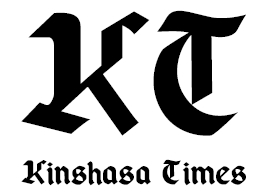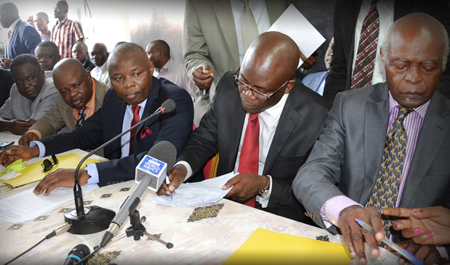 For better or worse, the political scene in the DRC increasingly resembles a zero-sum chess game.
For better or worse, the political scene in the DRC increasingly resembles a zero-sum chess game.
No one any more believes it will be possible to hold presidential and legislative polls by the end of this year. Neither does anyone attempt speculating on what the coming five months hold in store. In this continent-sized country of 70 million inhabitants, 40 million voters, 26 provinces and 700 political parties, not a single election ever was held within the set deadline since the country became independent.
The opposition seems adamant not to once again resign itself to this calendar curse. Better have imperfect elections than see Joseph Kabila extend his stay in power beyond 19 December, says the opposition, stressing that a minimum of political will and the assistance of the international community could help avert what it perceives as a violation of constitutional legality.
While it is clear that the incumbent president is banned from running in the next presidential polls, his decision to extend his tenure, the time to allow impeccable elections to be held and enable him to anoint a dauphin who can emerge victorious (in a Putin-Medvedev style) is equally clear.
Two sides, with diametrically opposed interests and strategies, are pitted against each other, much like two bullet trains speeding towards each other on the same track.
Will there be an inevitable collision?
The Congo Episcopal Conference (which called for a « patriotic re-awakening »), the UN Security Council in its resolution 2277, the International Support Group for the facilitation of the dialogue, with Maman Sidikou and Smail Cherqui, still want to believe that dialogue bridge between both sides is not yet broken. However, that bridge is permeated with distrust much as Mount Everest is tall.
Paradoxically though, this bridge is less of an impassable obstacle between Kabila and Tshisekedi, who has never accepted Kabila’s legitimacy, than it is between Kabila and those who, at one point in time, have been his ministers, allies or financial sponsors, inter alia: Kamerhe, Kamitatu, Katumbi, Lumbi… With the latter ones, the die is cast, and their defection, which was considered as a treason by Kabila, has sent the Congolese president back to his erstwhile reflexes. The Kabila of July 2016 is more than ever secretive and cryptic, a survival technique his father taught him in order to escape the « hiboux« , the hit squad that Mobutu used to unleash to track down his family.
Should the dialogue fail or abort, there will be no other alternative but the balance of power.
On the one hand, the opposition, which enjoys a favourable bias from certain members of the international community (United States, European Union, and the UN Secretary General) has to its advantage the civil society, the backing of most of the Diaspora and the impact of social media. Tshisekedi has his divisions, Kamerhe and G7 have their followers, and Katumbi has his celebrity (and it will be worth observing how it morphs into popularity).
Their weapon: demonstrations and civil disobedience.
The regime, on the other hand, has a party with a decent DRC-wide footprint and has allies such as Lumumbist Gizenga. Its trump card, which has unfailingly been used in ex-Zaïre, is that of opposing nationalism against the « diktats » of the West and its domestic « agents ».
The regime further has a tight grip on the security services, provincial governors and on the managers of the major state-owned companies.
Its weapon: the maintenance of order and the availability of financial resources.
The situation is therefore volatile, much at the mercy of fire-starters and snipers that are invariably found in either side.
From Kinshasa to Goma, from Kisangani to Lubumbashi, the time is ticking away for the dialogue.
Hopefully invectives will eventually give way to the dialogue.
François Soudan in Jeune Afrique


